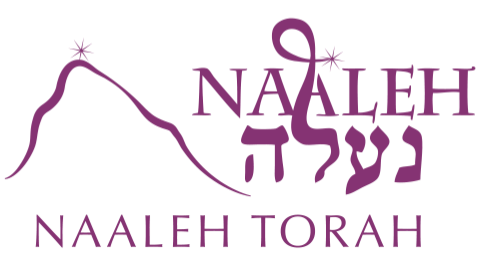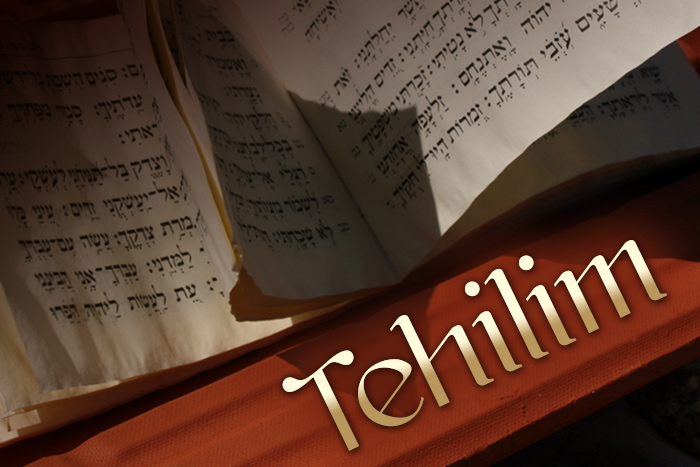Category: Tehillim
Psalm 121
Posted onPsalm 130
Posted onPsalm 144
Posted onPsalm 91
Posted onPerek 135, Part 2: Jewish Destiny as a Path to G-d
Posted onIn this Torah shiur (class) on Tehillim, Rabbi Avishai David explains the lessons of psalm 135. There are two ways to reach true emunah, belief in G-d, through Nature and through recognition of Hashem’s intervention in Jewish history. The latter way is the ideal approach, as it reflects our understanding of Hashem’s absolute control of the world
Psalm 135, Part 1: Creator and Master
Posted onIn this Torah class (shiur) on Tehillim, Rabbi Avishai David explains the various segments of perek 135. Hashem is praised as both the Creator of the world, and the One who intervenes in all world events. Through the names of Hashem in the chapter, we learn His of His interaction with us through Middat Hadin (justice). The greatness of klal Yisrael lies in our commitment to Hashem and His Torah even in times of hester panim (Hashem’s hiddenness).
Perek 90, Part 2: Fear and Love
Posted onIn this Torah shiur (class) on Tehilim, Rabbi Avishai David continues his analysis of Psalm 90. Rabbi David notes the dialectic of fear and love in our relationship with Hashem, which is prominent in this chapter, and compares it to the themes of Unetaneh Toekf and Neila, important prayers of the High Holy Days.
Perek 90, Part 1: The Eternity of Hashem
Posted onIn this Torah shiur (class) on Tehillim, Rabbi Avishai David explains the structure and themes of Psalm 90. This chapter, similar in theme to the prayer of U’netaneh Tokef on Rosh Hashana and Yom Kippur, contrasts the eternal nature of Hashem and His Torah with the transience of Man’s existence. The perek ends with a plea for Divine assistance in repentance, and a life of blessing and fulfillment.
Perek 131: Pride and Humbleness
Posted onIn this Torah shiur (class) on Tehillim, Rabbi Avishai David explains various aspects of Psalm 131. This perek focuses on the evolution from ga’avah (pride) to anava (humbleness), and its relevance to the life of David Hamelech.
Perakim 70 and 71, Part 2: Faith Amid Judgment
Posted onIn this Torah shiur (class) on Tehillim, Rabbi Avishai David continues explicating psalms 70 and 71, which describe the judgment and concealment of G-d’s Presence amidst our enemies’ attacks, and King David’s unwavering faith during troubled times.
Perakim 70 and 71, Part 1: Salvation and Thanks
Posted onIn this Torah class (shiur) on Tehillim, Rabbi Avishai David analyzes the themes of chapters 70 and 71, focusing on both the distress felt at the beginning of the psalms, and the ultimate thanks and praise that characterize their end.
Perek 22, Part 3: The Gradual Break of Dawn
Posted onIn this shiur (Torah class) on Tehillim, Rabbi Avishai David continues his analysis of the intriguing chapter 22, which refers to the travails of both Queen Esther and King David. The perek is also a parable for the the difficulties of galut and the nature of geula (redemption), and the dual reality of Hashem’s hiddenness and His guidance during difficult periods of history.
Perek 22, Part 2: From Desperation to Salvation
Posted onIn this Torah shiur (class) on Tehillim, Rabbi Avishai David continues his analysis of Psalm 22, which was said by Esther before she went to Achashverosh. This poignant prayer reflects both the helpless desperation felt in a time of harsh decrees, as well as the overwhelming joy and light of salvation.
Perek 22, Part 1: From Abandonment to Revelation
Posted onIn this Torah shiur (class) on Tehillim, Rabbi Avishai David analyzes Psalm 22, which refers to the struggles of both David Hamelech and Queen Esther. This perek is a beautiful progression from initial feelings of abandonment and helplessness, which lead to prayer and bitachon, to eventual revelation, salvation, and joyous thanks to Hashem. The final praise is so intense that it begins with personal thanks, and spreads to include all of klal Yisrael (the Jewish people), the malachim (angels), and eventually the entire universe.
Perek 129: Troubled by Our Enemies
Posted onRabbi Avishai David teaches kapitel (chapter) 129, one of the perakim of Shir Hamaalot. This perek describes the travails, both physical and spiritual, brought on us by our enemies, and our ultimate salvation from them.
Perek 125: Jerusalem and the Nations of the World
Posted onRabbi Avishai David continues to explain some of the 15 Shir Hamaalot chapters which were sung on the steps leading to the Temple (Beit Hamikdash). In this perek, David Hamelech describes how the nations of the world vie with each other in order to control Yerushalayim during the times that the Jewish people is in exile.
Perek 124: Salvation Within Exile
Posted onRabbi Avishai David explains some of the 15 Shir Hamaalot chapters which were sung on the steps leading to the Temple (Beit Hamikdash). This perek either refers to the Purim miracle, or to general galut. it describes the fierce hatred of our enemies, and the miraculous salvation we merit from Hashem.
Perek 23, Part 4: Torah Study: The Ultimate Goal
Posted onIn this Torah shiur (class) on Tehillim, Rabbi Avishai David continues his study of perek 23, the famous Mizmor L’David sung every Shabbos. In this class, Rabbi David discusses why specifically this Psalm is sung at meals, the Psalm’s emphasis on Torah study as the focus and ideal of every Jew, and the combination of din (judgment) and rachamim (mercy) in Hashem’s relationship to us.
Perek 135: Hashem’s Imprint on History
Posted onIn this Torah shiur (class) on Tehillim, Rabbi Avishai David compares and contrasts perakim 135 and 136, which focus on Hashem’s handiwork in Creation and History, as well as on His Role as Provider to the whole world
Perek 23, Part 3: Loving Rebuke
Posted onIn this Torah shiur (class) on Tehillim, Rabbi Avishai David continues his analysis of Perek 23, the famous perek Mizmor ‘David’. In this class, Rabbi David discusses the structure of the perek, as well as the statements of complete trust in Hashem.
Perek 104, Part 3
Posted onRabbi Avishai David summarizes the perek, compares and contrasts this perek with perek 103, and shows the harmonious interplay of the entire mizmor.
Perek 136: Pinnacle of Thanksgiving
Posted onIn this Torah shiur (class) on Sefer Tehillim, Rabbi Avishai David explains Psalm 136 as the ultimate prayer of thanksgiving to Hashem. This unique perek lists many of the kindnesses Hashem does for the world, followed by the refrain ‘ki l’olam chasdo’, (for His Kindliness is Eternal).
Perek 23, Part 2: Total Reliance on G-d
Posted onIn this Torah shiur (class) on Tehillim, Rabbi Avishai David continues with his analysis of Perek 23. He discusses the issue of balancing bitachon (reliance on Hashem) with the obligation for hishtadlus (expending effort in order to achieve a goal). In this class, Rabbi David relates this tension to the disagreement between R’ Yishmael and R’ Shimon bar Yochai, and shows how this perek reflects the experience of the Jews in the midbar (desert).
Perek 104, Part II
Posted onRabbi Avishai David compares Perek 104 with Perek 103, and points out the distinctions between them. Rabbi David analyzes the different components describing the process of creation, and points out how the idea of Ahavat Hashem is embedded in the mizmor.
Perakim 14 & 53, Part 2
Posted onIn this Torah shiur (class) on Sefer Tehillim, Rabbi Avishai David continues his analysis of Perakim 14 and 53, two perakim in Tehillim that are almost identical, yet contain a number of distinctions.
Perek 23, Part 1: Mizmor L’David
Posted onThis Torah shiur (class) on Tehillim by Rabbi Avishai David analyzes Psalm 23, known as ‘Mizmor l’David’. This mizmor is sung many times over Shabbat, and is famous for its themes of complete trust in Hashem’s goodness in every situation, and of the soul’s natural yearning for spirituality and connection with Hashem.
Perek 104, Part I
Posted onRabbi Avishai David examines the Ramban which accentuates the importance of praising Hashem, presents three possibilities of how to structure the mizmor, and shows how the mizmor can be divided into two parts.
Perakim 14 & 53, Part 1
Posted onIn this Torah shiur (class) on Sefer Tehillim, Rabbi Avishai David analyzes two perakim in Tehillim that are almost identical, yet contain a number of distinctions.
Perek 26 Part 2: Behavioral Teshuva
Posted onIn this Torah shiur (class) on Tehillim, Rabbi Avishai David continues his analysis of chapter 26. Rabbi David describes the structure of the perek, and delves into some of its themes, such as the inner worth of every Jew, repeating positive behaviors as the key to repentance, and how to approach Hashem in prayer



